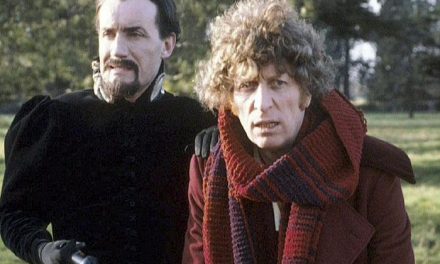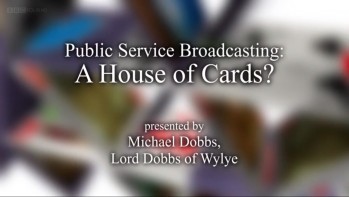
On 5 March, the BBC announced that BBC3 would become an online-only channel, subject to approval by the BBC Trust. It would be replaced on the digital broadcast spectrum by a new BBC1+1 service, following the success of ‘plus one’ channels for the other terrestrial broadcasters.
This move has huge implications for the BBC. Even the keenest advocate of online TV within the corporation says that it is earlier than we would have wished… by at least five years. So what are the reasons, and what are the implications?
1. £100 MILLION IN CUTS
As a result of the last licence fee settlement (a cash freeze) the BBC has to find £100 million in cumulative cuts. Under Mark Thompson’s regime, this process started, but it turns out not fast enough. Upwards of £80 million was lost on the abortive Digital Media Initiative (the BBC did well, by the way, in clawing back the best part of £20 million from Siemens). Taking on BBC World Service from the Foreign Office financing comes at an extra price.
So the nasty choice is: cut a little of everything, or just one big thing?
The available little cuts have already been made. Programme budgets cannot easily be squeezed in a period of intense competition; staffing levels have been reduced by ruthless use of 3 month contracts. ‘Salami slicing’ as the jargon has it, just won’t work on its own.
So a big thing had to be found.
And this is where the realpolitik comes in.
2. LICENCE RENEWAL
The BBC licence will be renewed by Parliament just after the next election, some time in 2016. The battle lines are already drawn, the initial skirmishes have been had. The new Director General Tony Hall has installed former Labour Culture Minister James Purnell (the one who resigned) to head up the licence fee campaign. He has recruited advisors including the long-time licence fee sceptic David Elstein. It will be a hard battle to keep the BBC adequately funded and the role of the BBC Trust is also at stake. Looming beyond this fight is the question of whether a broadcast-based licence fee has a future. People will raise it this time around, but the crunch for that decision is likely to be the 2021 renewal, or maybe even the one after that.
So how does the BBC send a clear message that it is really, seriously, short of cash?
By axing a channel.
They’ve tried this tactic before. The late lamented Jocelyn Hay founded VLV as a reaction to the threat to change Radio 4 to a 24 hour rolling news channel. This time round it was either BBC3 or BBC4… and politicians, it is alleged, like BBC4. So BBC3 it is.
But this time at least they can find it a new home, one that looks like a fit with BBC3’s users: the world of online.
3. THE CUNNING PLAN
The argument goes that freeing BBC3 from the dominance of the linear schedule will allow it to serve its users even better. Comedy available when you want it, repeatable ad infinitum. Isn’t that how these young people consume TV? Well, it’s what our students tell us that they do. It might just work.
There is a lot of thinking in the BBC about moving the organisation from one that primarily delivers linear broadcast programming to one that primarily delivers online content. In this thinking, i-Player would become the principal way in which users would encounter “My BBC”. The realpolitik here says that the BBC must make itself as essential online as it is in broadcasting, and the funding model will then have to follow.
There is a chance here to offer the first genuine online channel, something that my colleague James Bennett calls “unique, innovative and playful”. But no-one knows what that means, especially in any area of content other than half-hour situation comedy, which does seem to do well online. BBC3 launched Bad Education with Jack Whitehall as online content before broadcasting it, and this proved the model for the BBC. But Don’t Tell the Bride? Would that have worked as an online content launch? Or would it be lost among all the other competing offers, not least those on i-Player itself.
4. STRINGS ATTACHED
The move to online-only provision is, unfortunately, not the only cut that is being made. BBC3’s current budget for programming is £75 million. This could create a big splash in anyone’s online world, and be a real game changer. But there is another cut involved here: programme spend will be reduced from £75 million to £30 million per year. That’s just rude. Savings will be generated from no longer having to pad out a linear schedule, of course, but a cut of more than half is of a completely different order. It sends a message, just like not having a controller for BBC4 sent a message. More than the shift to online, this really says that BBC3 is a marginal outfit. BBC3 has been a creative engine for producers working with a young audience, but now they will probably look elsewhere first, to E4 or ITV2.
Then there is the other provision: all BBC3 commissioned material will be shown on BBC1 or BBC2. There has been a long tradition of BBC2 take-up of BBC3 commissions, from Little Britain on. So this is meant to be reassuring, to demonstrate that the BBC3 user will not be marginalised by the BBC, and that those (a not insubstantial minority) who have no easy access to online TV content will not be ignored entirely. But it also ties the new online channel to making material that can eventually be broadcast. I don’t know what new forms of material, if any, will be generated “inside” this new channel, but the presumption of eventual linear broadcasting would seem to be a double-edged sword.
5. ARE WE READY?
Broadcast TV seems to work. Viewing figures for the broadcast platform of delivery do not seem to be dropping in the UK. Online consumption is growing very slowly. The project to merge the two through smart TVs is still in its infancy. An online BBC3 is too early; it risks losing BBC3’s broadcast audience, a more traditional cross-demographic domestic audience than might first appear. BBC3 has an important place within many families with adolescent members. It allows joint viewing of youth-directed material. It’s doubtful that clustering around the laptop would be an adequate substitute: the sound and the angle of vision both preclude that. OnlineBBC3 will be, in the short term, a BBC3 for isolated individuals. It will remain so until online TV is not TV content online, but the TV experience delivered online. ‘My BBC’ is also ‘Our BBC’.
JOHN ELLIS is Professor of Media Arts at Royal Holloway University of London. He is the author of Documentary: Witness and Self-revelation (Routledge 2011), TV FAQ (IB Tauris 2007), Seeing Things (IB Tauris 2000) and Visible Fictions (1984). Between 1982 and 1999 he was an independent producer of TV documentaries through Large Door Productions, working for Channel 4 and BBC. He is chair of the British Universities Film & Video Council and leads the Royal Holloway team working on EUscreen. His publications can be found HERE.





